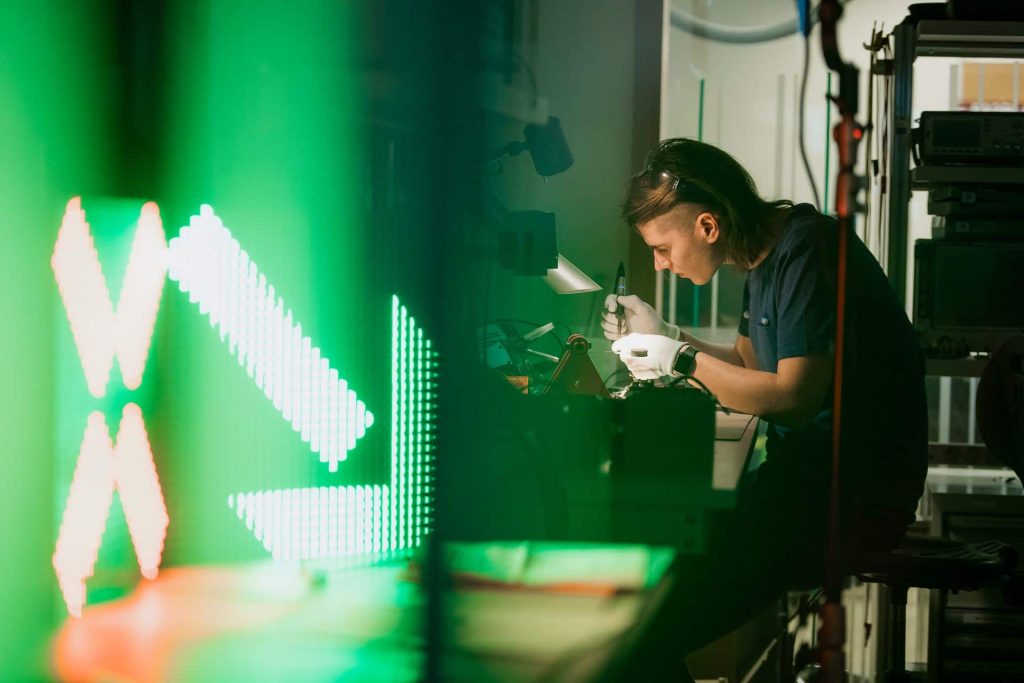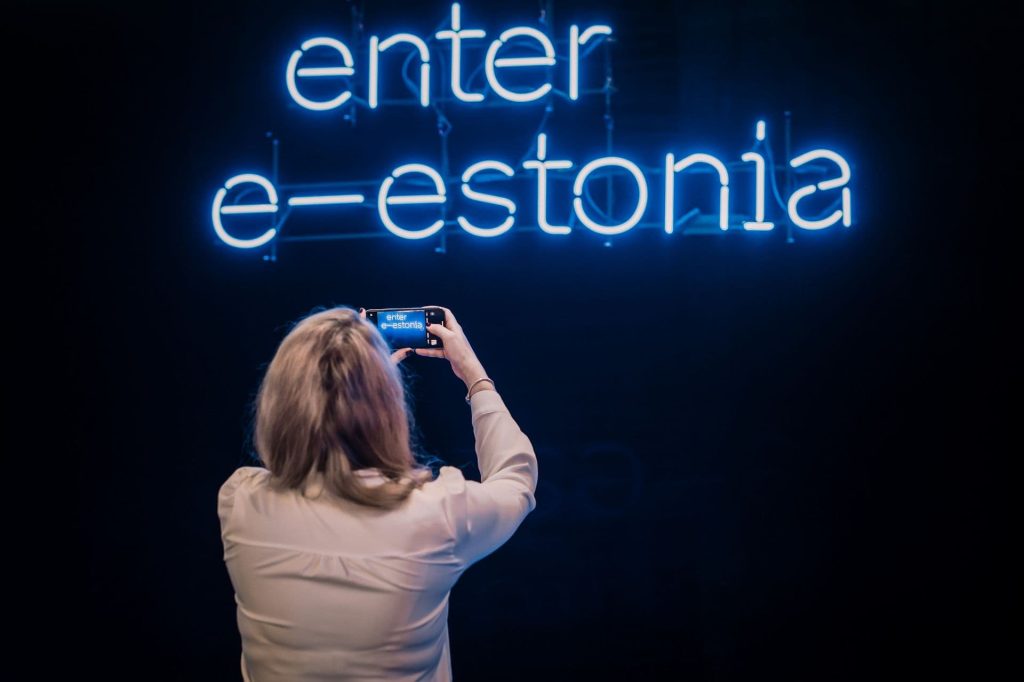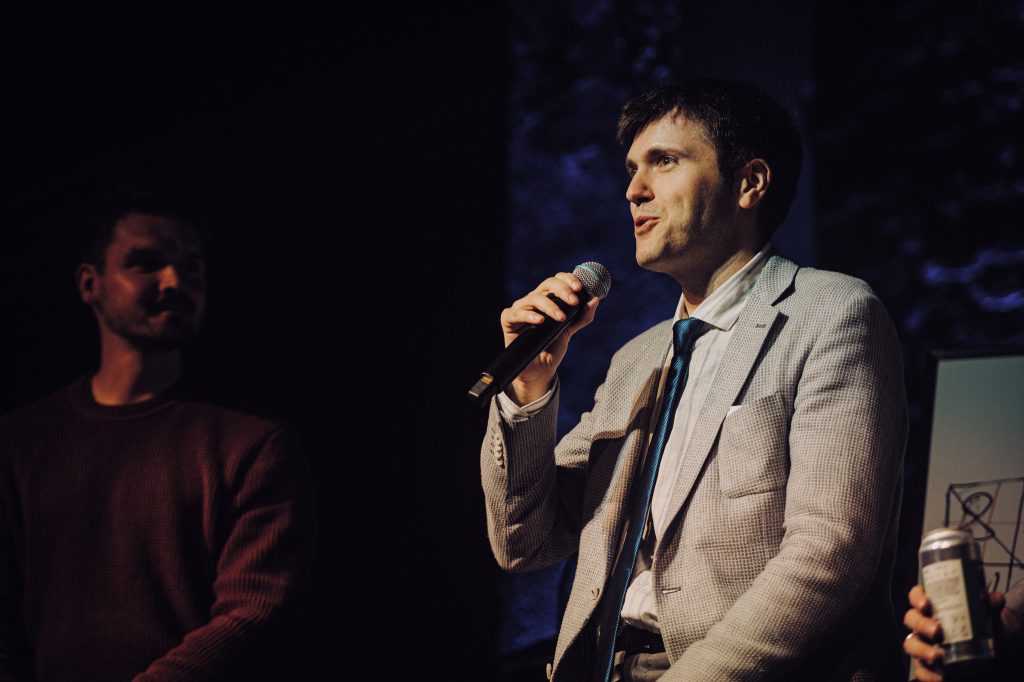how to access funding and grants for startups in estonia
Looking for grants for startups to grow your business? Estonia offers e-resident founders access to national and EU funding that fuels innovation and expansion.

Estonia is recognised as one of the most digitally advanced and entrepreneur-friendly countries in the world. For e-residents and founders looking to establish or grow their business, the opportunities go beyond the ease of company management.
The country offers a wide range of funding, support programmes, and grants for startups designed to help innovative companies scale both locally and internationally.
This overview covers some of the main funding channels available to Estonian companies, including those founded by e-residents and is based on an e-Residency Live Q&A session held in spring 2025.
Watch the session recording here:
Please to watch this video.
1. Enterprise Estonia grants for startups
Enterprise Estonia (EIS) plays a central role in supporting entrepreneurship, innovation, sustainable development, digitalisation, and export growth. Its grant programmes are open to Estonian-registered companies, including those created by e-residents, provided they meet the eligibility requirements.
It’s important to keep in mind that every grant and programme may have more specific criteria (like revenue threshold, employees in Estonia or others). In most cases, applying for a public grant in Estonia (Estonian or EU) needs business ties and/or substance in Estonia to become a successful applicant. Fully remote operations with no connections to Estonia (except the fact that the business is incorporated in Estonia) are usually not sufficient for receiving grants for startups.
Two main factors that could strongly support the ambitions of applying successfully for a grant are:
1. Hiring employees or opening an office/branch in Estonia or contributing by paying taxes in Estonia (corporate income tax, employment taxes). Also, a clear, provable roadmap or a plan for building a team, test plant, office or other substance in Estonia could be helpful.
2. Development (R&D) and innovation take place in or are strongly tied to Estonia (IP is also registered in Estonia). More generally speaking, business decisions, actions, and projects that add value to an innovative product (and its competitive advantage) and your company's commercial value should be done via an Estonian company.
Focus areas for EIS grants for startups include
- Innovation & R&D – Developing new products, services, or processes.
- Export & Internationalisation – Supporting companies entering new foreign markets.
- Green Transformation – Funding projects related to energy efficiency, renewable energy, and sustainable production.
- Digitalisation – Encouraging the adoption of new technologies to improve processes and competitiveness.
- Regional Development – Contributing to economic growth in different parts of Estonia.
This does not mean that you cannot apply for grants for startups if you are operating in another field; there are industry-specific grants available. It’s expected, though, that more resources are invested in companies and projects that help to develop the business landscape in the above-mentioned focus areas.

Key funding instruments include
- Innovation and Development Grant – €75,000–€350,000, covering up to 80% of project costs for R&D, prototyping, testing, and certification.
- Applied Research Grant – Up to €2M for developing innovative technologies, products, or services.
- Product Development Grant – Up to €500,000 to bring new products or services to market.
- Development Programme Support – €100,000–€500,000 for growth, digitalisation, and international expansion.
Check out the full list of Enterprise Estonia grants and support programs available, and a wider choice of different growth opportunities (including grants, accelerators and funds)on the e-Residency Funding, Grants and Growth page. Application rounds start and end seasonally, so it’s worth checking the current status on the websites.
It’s also possible to have a preliminary consultation call with Enterprise Estonia experts to get initial feedback on the funding options and eligibility criteria by sending a request to klienditeenindus@eis.ee
How the application process works
- Check eligibility – Ensure your company meets size, sector, and financial requirements.
- Select the right programme – Match your project with the most suitable EIS funding measure.
- Prepare documentation – Typically includes a business plan, financial forecasts, and a detailed project description.
- Apply digitally – Submit the application through EIS’s online self-service environment.
- Evaluation – Applications are assessed based on innovation, feasibility, and expected economic impact.
- Contract & funding – Approved projects receive funding in instalments linked to agreed milestones.
2. EU and international programmes: Horizon Europe and Eurostars
Estonian companies can also access EU-level funding for high-impact innovation projects. The application rounds are curated through local representatives, which in the case of Horizon Europe and Eurostars, is Enterprise Estonia.
Horizon Europe
Horizon Europe is the EU’s largest research and innovation programme, with a budget of over €95 billion (2021–2027). It funds projects that address major societal challenges, drive digital and green transformation, and strengthen Europe’s global competitiveness.
Who can apply
- Private companies (including SMEs and startups) registered in Estonia.
- Research institutions and universities (often as consortium partners).
- Non-EU partners can join projects, but the lead applicant must be based in an EU or Horizon-associated country.
Types of support
- Collaborative Projects: Multi-partner R&D initiatives with organisations from at least three different countries.
- EIC Accelerator: Grants for startups up to €2.5M and optional equity up to €10M for breakthrough innovations with high market potential.
- Thematic Calls: Funding for projects in specific areas such as clean energy, AI, health innovation, and digitalisation.
How it works
- Identify an open call
- Build a consortium (if required) with partners from other eligible countries.
- Prepare and submit a detailed proposal outlining innovation, impact, and implementation.
- Applications are peer-reviewed by independent experts, and funding is awarded to the highest-scoring proposals.

Eureka and Eurostars
Eureka is an intergovernmental network that promotes international cooperation in innovation. Eurostars is its main funding programme for SMEs carrying out R&D projects.
Who can apply
- R&D-performing SMEs registered in Estonia.
- Must have at least one partner from another Eurostars member country.
- Large companies, universities, and research institutes can participate as project partners but are not the main funding recipients.
Funding for Estonian participants
- Up to €300,000 for SMEs, with co-financing rates depending on project type (often around 50–60%).
- Covers eligible R&D costs such as salaries, subcontracting, equipment, and materials.
How it works
- Form a consortium with at least one partner from another Eurostars country.
- Submit a joint application via the Eureka application portal.
- If approved, each country funds its own participants according to national rules. In Estonia, this is managed by Enterprise Estonia (EIS).
These programmes not only provide significant funding but also create valuable connections to international partners, investors, and research networks.
3. Easy.ee – AI-powered grant matching tool
Easy.ee is an AI-powered platform designed to simplify this process for Estonian-registered companies, including those founded by e-residents. You can also find Easy.ee in the e-Residency Marketplace!
What Easy.ee does
- Matches your company profile to funding opportunities – Using AI algorithms, the platform analyses your business sector, size, development stage, and strategic goals to suggest grants most likely to fit.
- Covers both national and EU-level funding calls – From Enterprise Estonia programmes to Horizon Europe and other international opportunities.
- Provides step-by-step guidance – Helps you understand eligibility criteria, application requirements, and deadlines.
How it works in practice
Just start with inserting your Estonian company’s registry code:
- Company onboarding – You answer questions about your business model, sector, growth stage, team, and innovation plans.
- AI matching – The system cross-references your profile with a constantly updated database of Estonian and EU grant calls.
- Grant shortlist – You receive a tailored list of funding options, ranked by compatibility and potential fit.
- Application assistance – Easy.ee offers templates, examples, and best-practice tips to improve your application. For complex calls, they can connect you with professional grant writers.
- Ongoing monitoring – The platform keeps track of new opportunities and upcoming deadlines, so you don’t miss a relevant call.
Why it’s useful for e-residents
- Removes the need to manually research multiple funding sources in Estonian or EU databases.
- Helps non-resident founders identify the calls where they have the highest chance of success.
- Supports applications with expert insights to increase the probability of approval.
By combining automation with human expertise, Easy.ee makes funding discovery and application more efficient – helping founders focus on building their business rather than getting lost in bureaucracy.
Rosen Dimov's experience applying for grants
E-Residency envoy and a long-term e-resident Rosen Dimov has personal experience in applying for grants as well as supporting other founders in writing the applications.

"A grant application is not about asking for money; it is about proving you are solving a problem that matters to the world."
Rosen has applied for several EU grants, including Horizon Europe and Eurostars, with his company PhaseGrowth. These applications focused on projects around deep-tech innovation and growth acceleration. His direct experience with these programmes gave him insights into how to navigate the complex but rewarding European funding landscape.
Rosen's grant application tips
1
Think strategic, not free money
Grants are a strategic tool to fund innovation and scale ideas that might otherwise remain unfunded. The most important step is aligning your project with the specific objectives of the grant programme, rather than trying to “force-fit” an idea.
2
Build strong partnerships
Building strong partnerships is essential, particularly in collaborative European programmes where cross-border cooperation is key.
3
Show clarity and impact
Successful applications require clarity, feasibility, and measurable impact. Show how your project solves a real problem, provides added value, and benefits not just your business but also wider society.
4
Prepare for the time commitment
Good applications need careful preparation, clear budgeting, and often months of planning. At the same time, the experience of preparing a grant proposal can strengthen a company’s vision and sharpen its strategy.
Positioning for success as an e-resident founder
For e-resident companies, access to these opportunities depends on more than just eligibility. Successful applicants typically:
- Demonstrate economic and knowledge links to Estonia through partners, suppliers, or employees.
- Plan funding in stages, using smaller grants for startups to prepare for larger EU calls.
- Keep track of deadlines, as many programmes operate on fixed annual or semi-annual schedules.
- Make use of support services from Enterprise Estonia, professional grant writers, and platforms like Easy.ee.
As a conclusion, applying for grants is something that e-resident founders should definitely consider, as their companies incorporated in Estonia may be eligible to get one. However, it may not be “easy and carefree” money. Applying for and using grants involves a lot of work and dedication.
Also, clear ties to the Estonian business ecosystem are often expected; it’s worth establishing them already before thinking of applying for grants. Luckily, there are companies and experts who could help founders navigate the complex grant systems, write good applications and stay compliant with reporting requirements.
Not an e-resident yet?
More from e-Residency
- Sign up for our newsletter
- Watch fresh video content - subscribe to our Youtube channel
- Meet our team and e-residents - register for our next Live Q&A